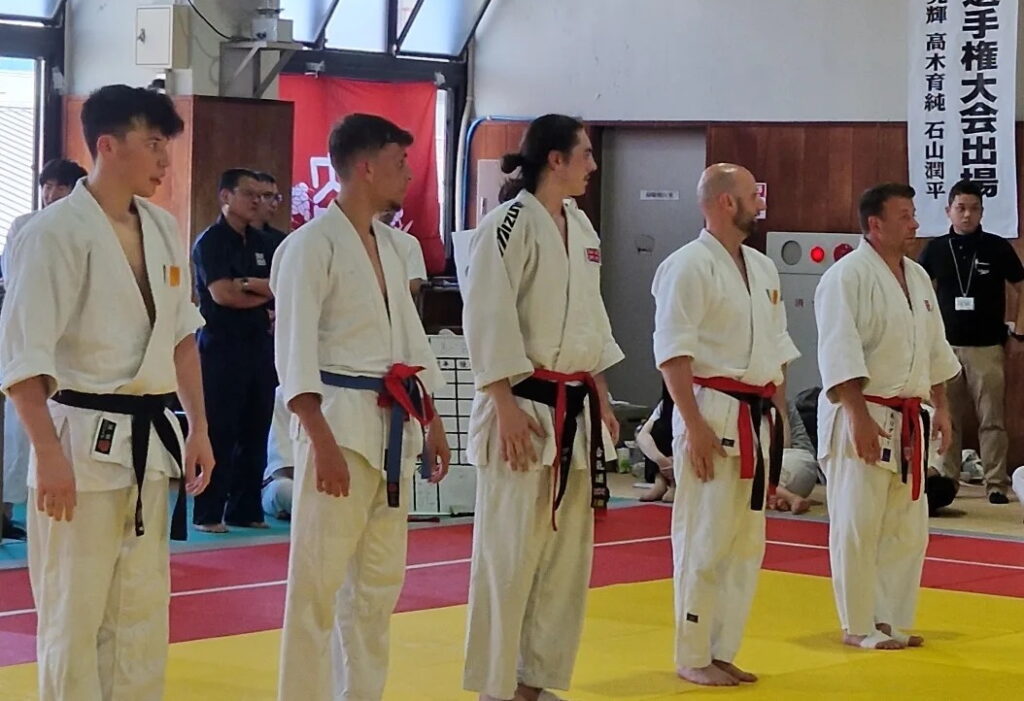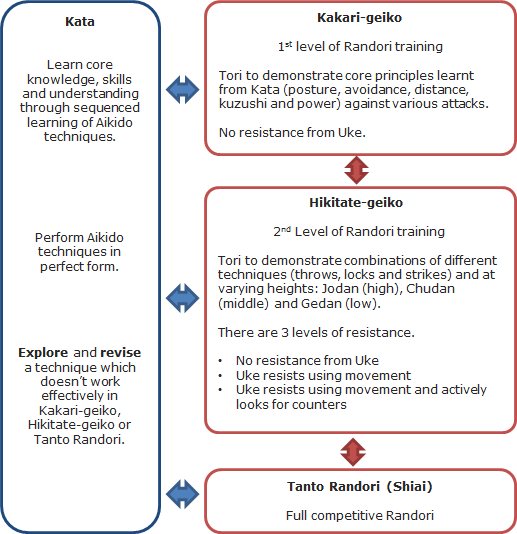Kenji Tomiki was a first generation student of Morihei Ueshiba (founder of Aikido) and of Jigaro Kano (founder of Judo). Kenji Tomiki founded the Waseda University Aikido Club (Tokyo), with the proviso that competition be incorporated in Aikido practice.

Kenji Tomiki was aware that second, third and future generation students of Aikido, who by practicing only traditional Aikido, would not know how hard and, indeed, so difficult, it would be to apply Aikido techniques effectively to equally well-trained opponents when resisted or counter-attacked with 100% free will.
The Dawn of Tomiki Aikido
Kata along with Kakari-geiko and Hikitate-geiko practice are balanced and essential aspects of training within Tomiki Aikido.

Professor Tomiki did not put importance on how many techniques we knew. Rather, he encouraged us to master truly effective techniques with infinite possibilities of different ways of realistic applications. As a good example, a championship-class Judo player possibly has mastered only five or six effective techniques with thousands of different applications.
Seiji Tanaka, 7th Dan
Kata
Provides core knowledge, skills and understanding of Aikido through sequenced learning. Core principles learnt through Kata include:
- Posture and balance
- Avoidance and blending
- Maintaining appropriate distance
- Balance breaking and direction of throw
- Exploiting Uke’s weaknesses
Randori
Takes the kata principles and asks the Aikidoka to apply them in an unstructured/non-sequenced manner to see if the Aikidoka can decide when and how to effectively apply a specific Aikido technique in a variety of applications:
- Kakarigeiko – Randori without or with light resistance
- Hikitategeiko – Randori with counters and combinations with varying degrees of resistance
- Shiai Randori – full competition Randori

Being a being a member of the British Aikido Association (BAA), club members can take part in the various junior and senior competitions organised by the BAA, as well as the international competitions organised by the Worldwide Sport Aikido Federation, the Japan Aikido Association (JAA) and the European Tomiki Aikido Network (ETAN),
Senior Competitions

Senior competition events
Junior/Youth Competitions
Juniors compete in up to four events in three age categories (Under 8s, 10s, and 12s). Young adults compete in up to 5 events within two age categories, (14s and 16s), as they have an additional event for Open Kata.
Junior events
Upcoming Competitions
Details of upcompijng events and competitions.
